The SANFL stars helping blokes learn to smile again through an app called Greg
The inside story of how a group of retired SANFL footballers came together to help blokes reconnect, get fit and learn to smile again ... all through an app.
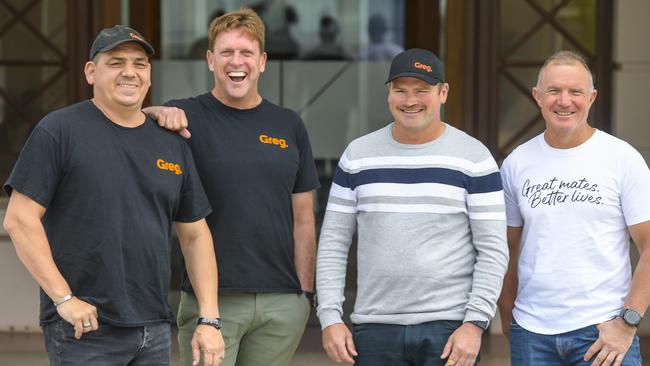
SA Weekend
Don't miss out on the headlines from SA Weekend. Followed categories will be added to My News.
Simon Luhrs, Craig Cotter and John Abbott all became fast friends on the footy field.
Playing for Central District in the 1990s, just as the club was entering its golden era, they enjoyed a fierce camaraderie and love of the club, and the game.
They revelled in the joys of being young blokes competing in top level sport.
Play hard. Party hard. Those friendships can last a lifetime and, in this case, did.
But as the years crept on, they say, life inevitably got in the way, as it does for everyone. Once their playing days were finished, the structure and certainty of a footy club environment was superseded by anything but. Highs were replaced by more than a few lows. The innocence of youth usurped by reality.
A key hurdle struck 2001. The euphoria they felt at their beloved footy club winning its first flag in 2000 was soon shattered by the shock death of premiership captain Daniel Hulm the following year. He tragically took his own life.
Luhrs, who joined Central from the Brisbane Bears and became a champion centre-half forward, was an assistant coach to Peter Jonas on the day. Hulm’s death still affects him.
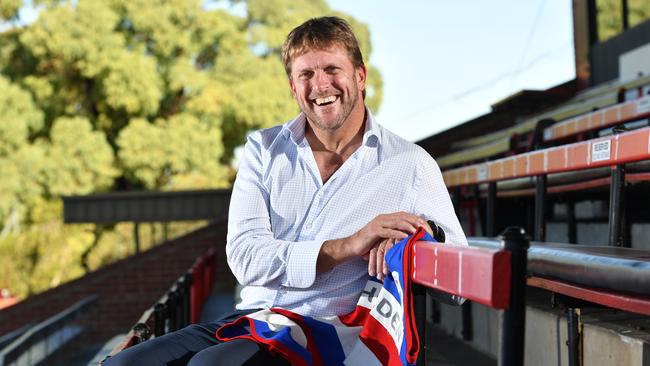
“For such a community based footy club to lose our first ever premiership captain before a ball was bounced the following year was taking something really from this highest of the highs to the lowest of the lows,” he says.
Then, in the years that followed, they would all see former teammates struggle after being released from the footy system. Some would go right off the rails. Others might just withdraw a little. And they would all endure their own challenges: marriage break-ups, business problems, family issues.
The stuff of life.
“In your 20s, life’s the best, you’ve got no pressures. You’re seeing your mates all the time, you’re exercising,” Cotter adds.
“But then when you retire, it’s easy to lose the plot, to lose that sense of belonging. People lose that structure in their lives. Then they’re confronted by whatever life chooses to dish up.
“With all those pressures, it’s just so easy to get off the beaten track. “And if you spoke to everyone and asked them if they could be connecting more, or be physically or mentally better off, they would say ‘Yes’.”
So the former Bulldogs, alongside another mate and fellow ex-Sturt player Corey Gray, decided to do something about it.
Enter “Greg”.
The actual concept for “Greg” emerged when Luhrs endured a divorce and pretty much cut himself off from the outside world.
Then one day, two or three mates knocked on the door and said they were going to the Murray Man Triathlon – a 1.9km swim, 90km bike ride and a 21.1km run – and he was going to do it with them. No excuses. He agreed and started training.
His mates chided him for the extra tyre he’d gained around his waist, but as the weeks went on this soon came off and he felt as fit as his playing days.
He did the event and rediscovered his mojo.
He felt the happiest he’d felt in a long, long time.
A long chat with Cotter ensued. They spoke about issues with health and wellbeing and Cotter wanted to connect people in a way that reflected the reality of a 24/7 lifestyle.
That chat created a spark to create change, which led to the creation of “Greg”, an app designed to inspire and support mates, old and new, to get out and get moving.
The message resonated with Gray and Abbott, who jumped on board a few years back.
“In its simplest form, you get on there, find something to do, register to do it, invite some mates to do it with, and then you do some training and exercise, and catch up regularly to train for it,” Abbott explains.
“Greg is really just about catching up with your mates, and getting out and active more often.
“Blokes aren’t good at talking, particularly face to face, so the concept is if you’re riding, or you’re waking, or you’re shooting hoops, or having a hit of tennis, you’re more inclined to say, ‘Hey, things aren’t good’, or a mate will see it’s not good.”
“Greg” is not looking to replace some of the key services out there that are specifically designed for people in crisis or suffering from chronic or ongoing mental health issues.
This is more targeted towards people before they potentially reach that point, for people who are “OK” but just want to be doing a bit better.
“I think if you look at me personally, I haven’t got into a really, really bad, dark place but I certainly got into a place where I did shut myself off from friends and those that wanted to look after me,” Luhrs says.
“I certainly wasn’t doing well. And I could have been doing a lot better.”
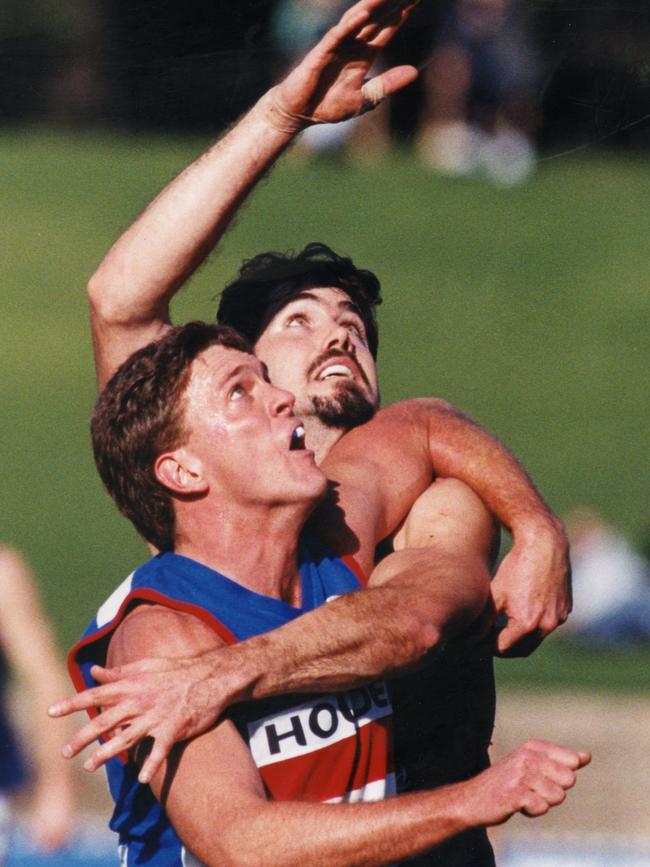
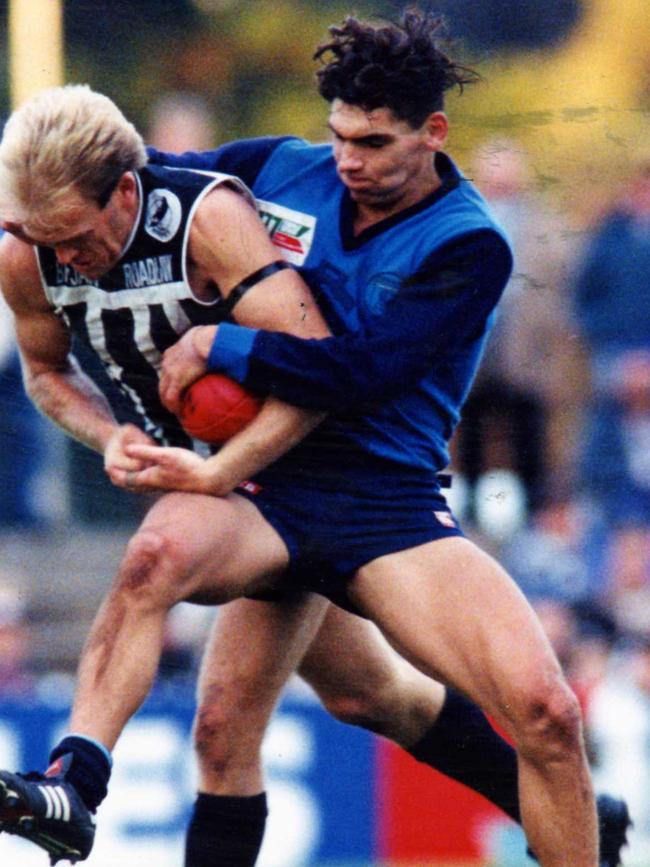
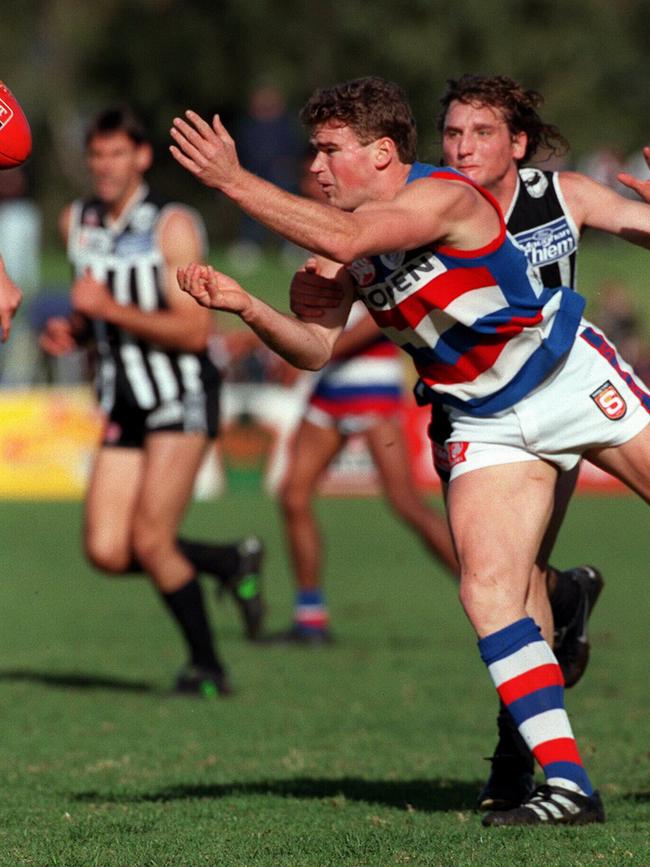
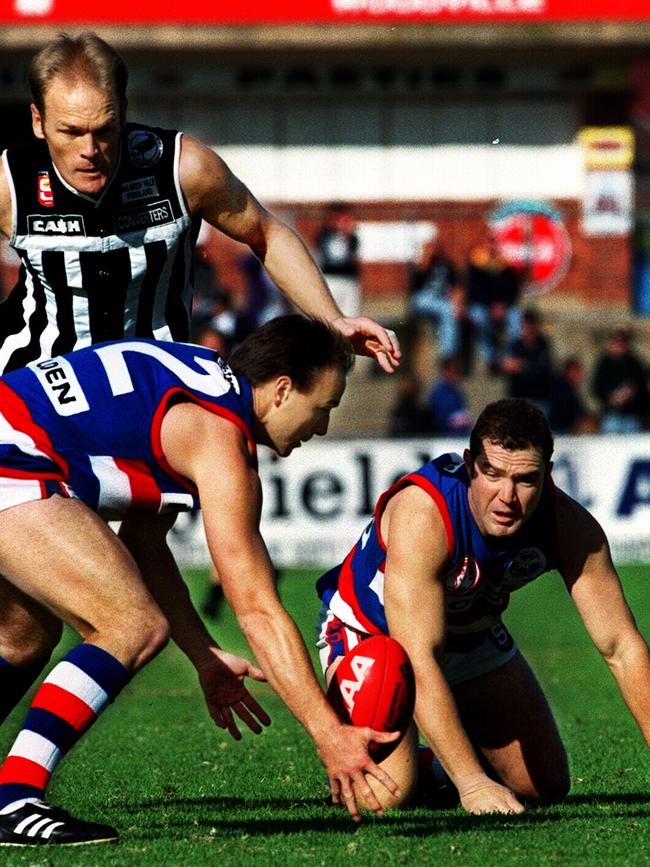
While “Greg” is not designed as a specific mental health or healthy lifestyle app, the links are clear to see; people who catch up with friends regularly to exercise have much improved health outcomes; the fact that of the nine Australians who take their own lives in Australia every day, seven are men; and, the growing issues of obesity and hearts problems.
“We’re living longer than we ever have but, physically, we’re unhealthier than we’ve ever been,” Luhrs says.
“So prevention is always better than a cure.
“So we’re just saying that as a society let’s do the things we actually did quite well a while ago before things changed in the age of social media and Facebook, and that’s just get people physically connected again.”
However, it’s crucial to the team that it delivers its message with a smile. Hence the name.
“It doesn’t sound too heavy or serious,” Luhrs says.
“And doesn’t everyone have a mate somewhere called Greg?”
The group, which is based in Lot Fourteen, has been working on it consistently for the past two years and launched the app last month to coincide with Mental Health Awareness Month.
One of the state’s mental health commissioners, John Mannion, says it has come along at precisely the right time, with health authorities often struggling to connect with men.
“There are complex challenges around men’s mental health and what I love about ‘Greg’ is that it’s all about the simplicity of connectivity, not too complicated to use and driven by a powerful belief in the need for change,” Mannion says.
“It’s a fabulous tool.”
The “Greg’ team has been in touch with the AFLPA, a number of AFL and SANFL clubs.
They’re hoping the app has wider appeal, from military veterans re-entering society to migrants coming to Australia for the first time.
“Greg is about reconnecting old mates, while also helping people find new ones. Its for the whole community, providing things to do, and people to do them with,” Gray says.
“For any group to chat and organise a catch up, exercise or social, they should do it on Greg.”
They’re also working on attracting investment from corporate and individual supporters to underpin the second phase of the development of the technology to be able to broaden its reach and capabilities.
“I think we’ve made a great start and, up until now, the project has been funded privately by the founders and our mates, and we’ve invested a significant amount of our own money because we believe so passionately in the need for a different way to talk to men about health and wellness,” Luhrs says.
“And now, we’re hoping others will also see the value in Greg, and get on board to help us take the next step.”
■ Greg is available as a free download on the App Store




